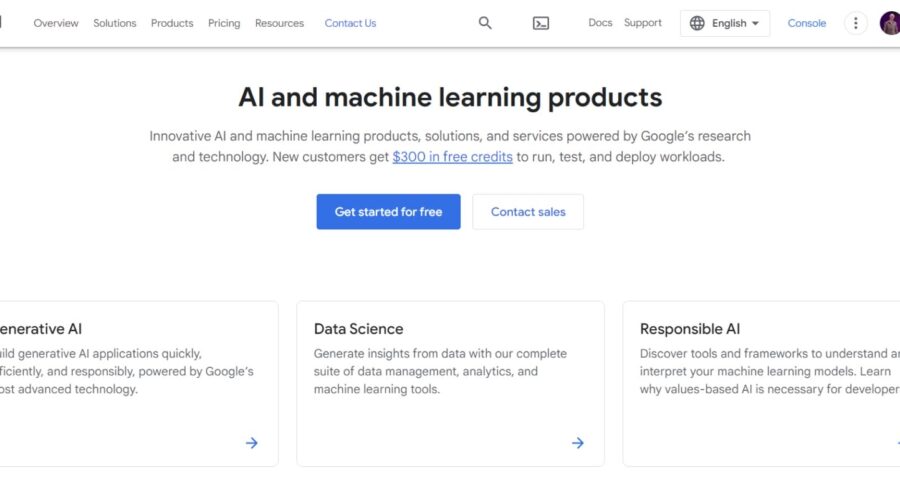Building artificial intelligence (AI) tools for your business is becoming more mainstream with the advancement of AI development software. AI and machine learning (ML) projects require a lot of advanced systems working altogether. So it makes sense for developers to use a platform that does most of the heavy lifting. The best AI development software can provide the framework and tools to develop tailor-made AI tools for a variety of applications. This article explores some of the top platforms used today.
What is AI Development Software?
AI development software is software that allows users and businesses to build powerful AI tools to streamline various tasks with amazing speed and efficiency. You’re probably familiar with some popular AI tools already developed. Examples of AI tools include:
- AI Chatbots like ChatGPT and popular alternatives like ChatSonic.
- AI writing tools like Jasper help with generating and optimizing content. questions.
- Live chat software for streamlining online customer support.
- AI marketing tools for generating sales copy and automating workflows
- AI art generators like MidJourney and PhotoSonic help creatives generate amazing digital artwork and images.
- AI voice generators (and similar text-to-speech tools) for producing lifelike speech from text for various applications.
- AI SEO tools for optimizing website content to rank higher in search results.
Although these AI tools are great out-of-the-box solutions for many, developers are finding it easier than ever before to use AI development software to build custom AI tools to meet more specific needs. Developers can even use drag-and-drop interfaces and other helpful no-code features, depending on the platform.
With AI development software, online stores are building custom chatbots for more conversions and better customer service. Businesses are using custom AI machine learning software to generate advanced data reports to grow revenue. And that is just the tip of the iceberg.
Types of AI Development Software
In general, the best software for developing AI tools will usually offer the following types of solutions:
- AI Development Platforms: These comprehensive solutions enable the construction of AI applications from the ground up. Featuring an extensive selection of pre-built algorithms and an accessible interface, they simplify designing and adapting AI models with user-friendly elements such as drag-and-drop capabilities. These platforms accommodate developers with varying skill levels and serve as a versatile base for AI projects.
- Deep Learning: Focus on training artificial neural networks inspired by the human brain for tasks requiring human-like intelligence. Utilizing architectures like Convolutional Neural Networks (CNNs) and Recurrent Neural Networks (RNNs), deep learning software is applied across various fields, including computer vision, natural language processing, and speech recognition. These tools often rely on large datasets, powerful computational resources, and advanced optimization techniques to improve model performance.
- Machine Learning: Enable computers to learn from data by identifying patterns and relationships. These tools use various algorithms and techniques, such as decision trees, clustering, and regression analysis, to build predictive models that can make data-driven decisions and adapt over time as new data becomes available.
- Conversational AI: Focuses on simulating human-like conversations, enabling developers to create interactive and responsive conversational agents. These tools use natural language processing and other AI techniques to effectively understand and respond to user inputs.
The best AI dev platforms will have pre-trained models, easy-to-use user interfaces (UI), and plenty of support material to get one’s bearings.
What are the Best AI Development Software and Platforms?
Subscribe To Our Youtube Channel
If you’ve been looking into AI development, you’ve likely heard many of these big names. But we’ll give an overview of the top development platforms to give you a good idea of their capabilities.
1. Google Cloud AI Platform
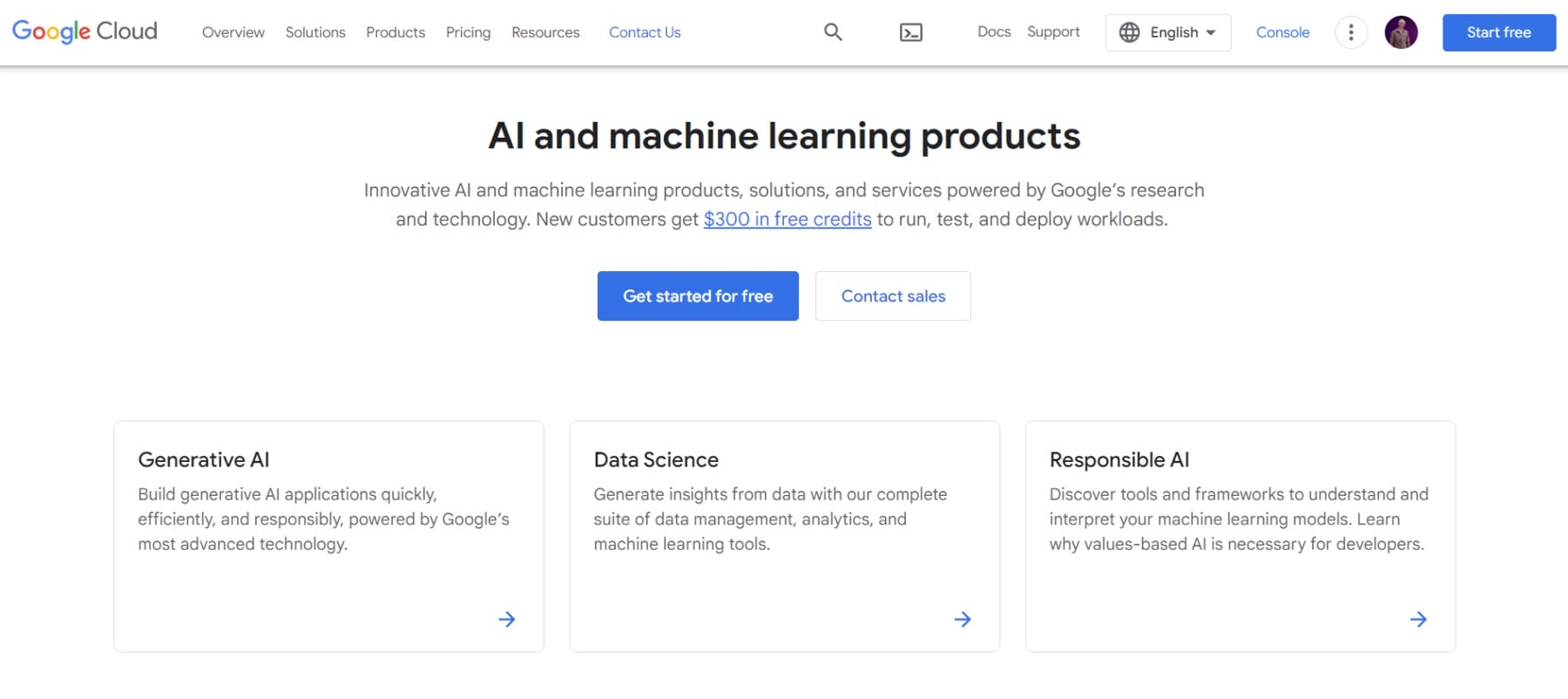
Google Cloud AI Platform is a cloud-based service that allows developers to build, train, and deploy machine learning models with popular frameworks. With plenty of widely adopted pre-trained models, AI developers can quickly start building their own tools with the basics covered.
Key Features:
- Support for popular frameworks, including TensorFlow and Scikit-learn
- Built-in algorithms for tasks such as image and speech recognition, NLP, and predictive analytics
- A scalable and easy-to-use platform for building, training, and deploying ML models
- Plenty of documentation to help learn the platform and create advanced products
Shopify is making use of Google’s Discovery AI to give advanced online retailers access to advanced product search based on AI – See Shopify Commerce Components
Visit Google Cloud AI Platform
2. Microsoft Azure AI
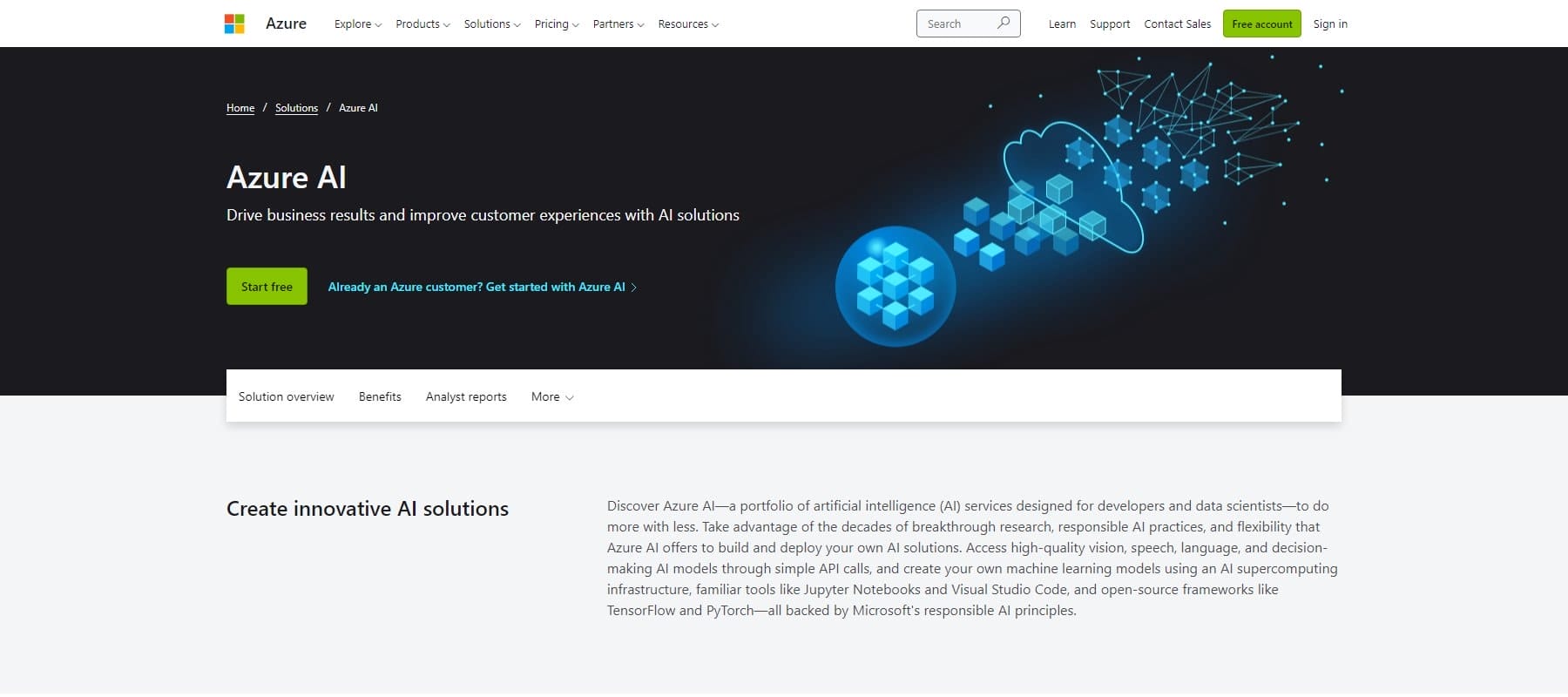
Microsoft Azure AI offers enterprise-ready AI services and tools for building, deploying, and managing AI solutions at scale, including machine learning, deep learning, and cognitive benefits. It also is a go-to platform for pre-trained models that developers can leverage immediately and trust that the foundation is reliable.
Key Features:
- Offers tools for machine learning, deep learning, and cognitive services
- Integrates with popular development tools like Visual Studio and GitHub
- Scalable platform for building, deploying, and managing AI solutions at scale
- Allows AI developers to create custom AI models
3. IBM Watson
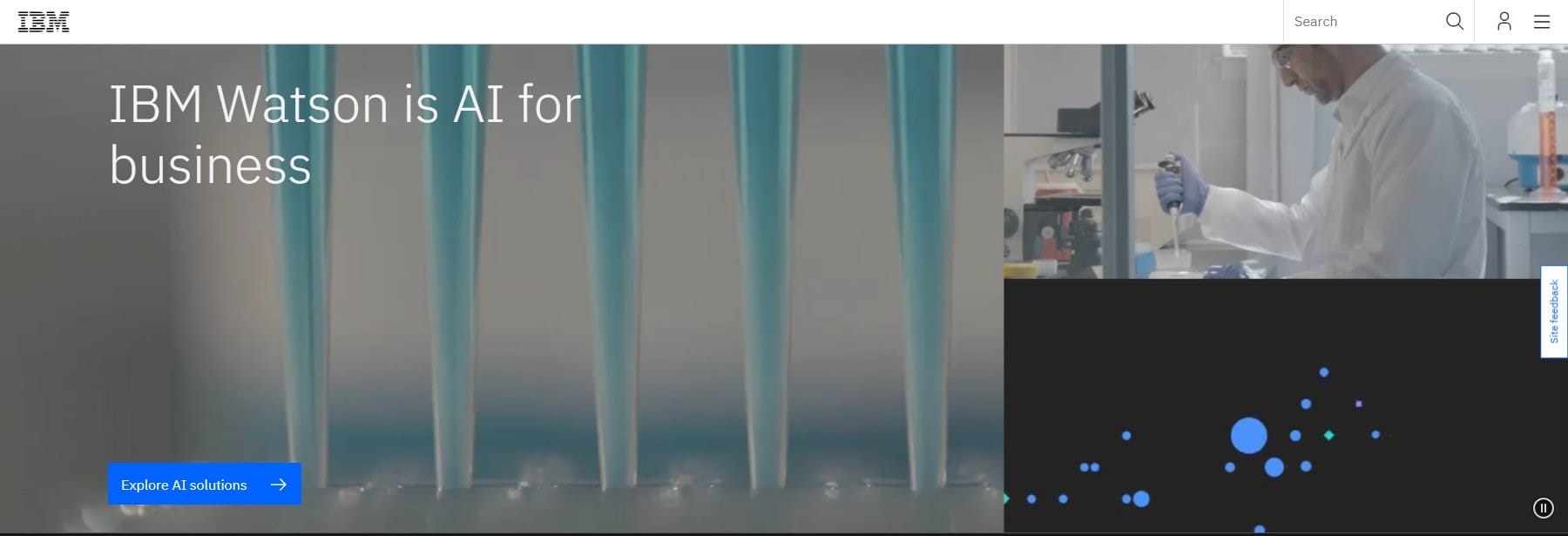
IBM Watson is a conversational AI platform built for question-and-answer use cases. It utilizes NLP, ML, and knowledge representation to find the meaning of a question and then generate accurate responses. It’s used in many business use cases; primarily customer support applications.
Key Features:
- Leverages machine learning, deep learning, and natural language processing techniques
- Pre-built AI services, APIs, and development tools
- System integration for customer services, healthcare, and education applications
4. Infosys XtractEdge

Infosys XtractEdge is an AI platform developed by Infosys that helps businesses automate complex business processes, improve productivity, and gain valuable insights using machine learning, deep learning, and natural language processing. It primarily does all this through information extraction from documents.
Key Features:
- Leverages ML and NPL to mine information hidden within documents
- Converts non-text information (images) to text using optical character recognition (OCR) so it can be processed
- Can automate document data extraction
5. H2O.AI
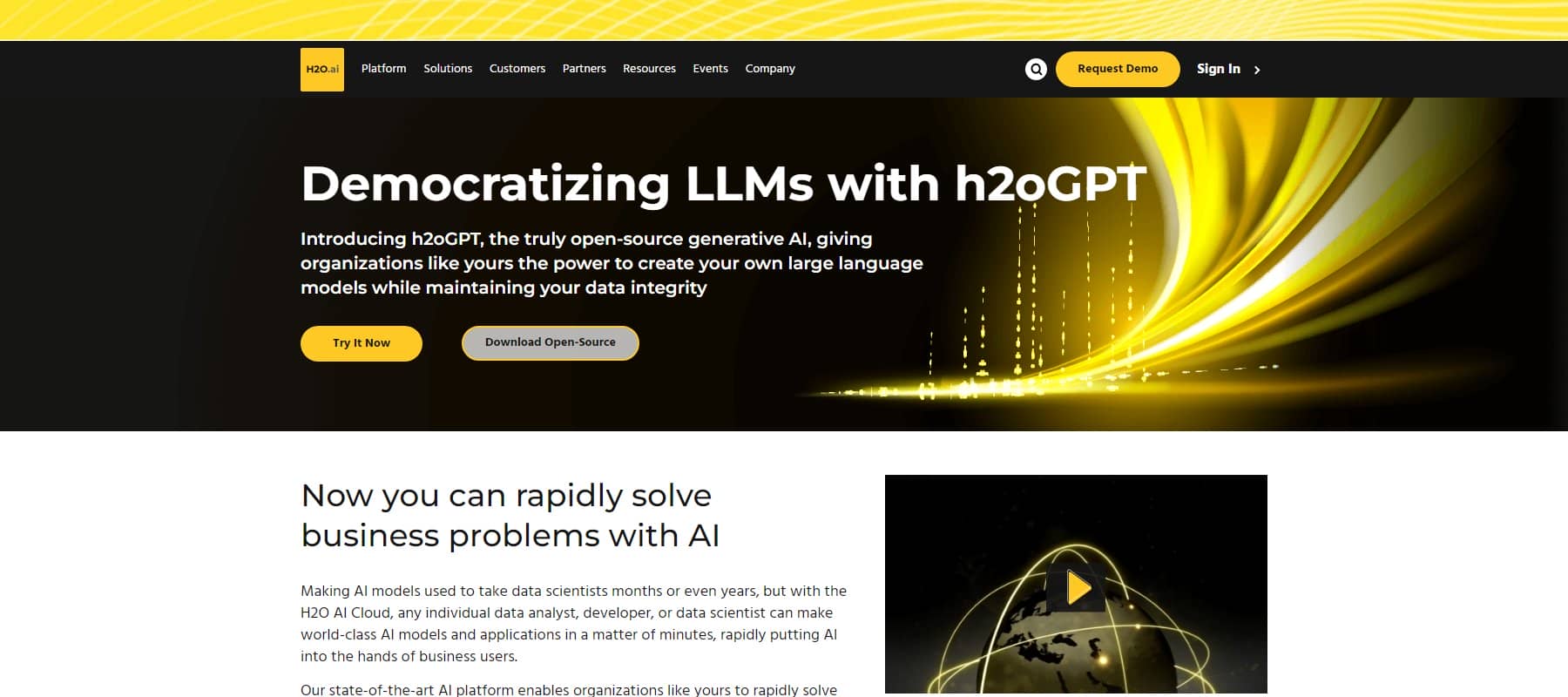
H2O.AI offers an open-source machine learning platform that enables developers to build and deploy AI models at scale. It features pre-trained, open-source AI models and algorithms. Its open-source nature allows developers to self-host their models or choose options for either on-premises or cloud deployments.
Key Features:
- Offers an open-source AI platform
- Primarily built for business applications
- Flexible deployment solutions for choosing the exact security control needed
6. Google Dialogflow
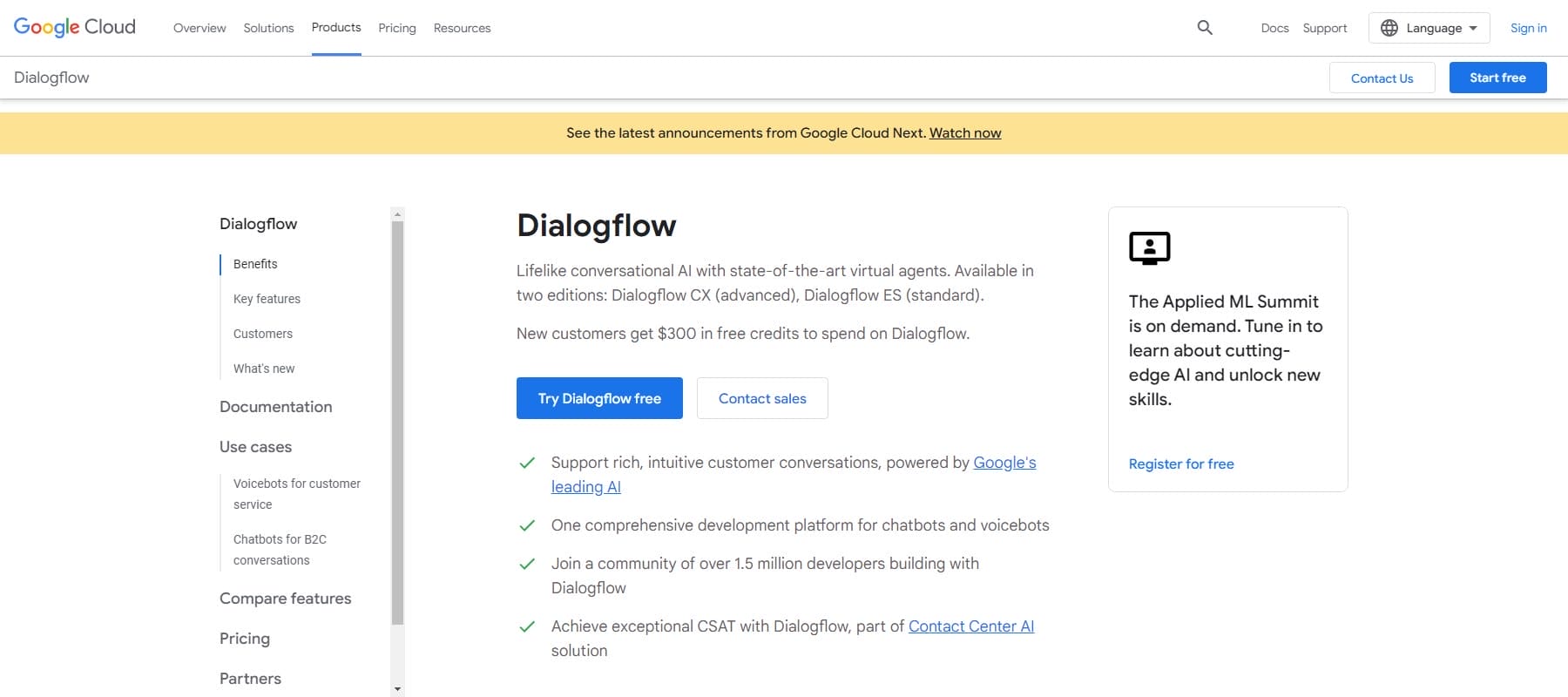
Google Dialogflow is a chatbot-building service (under Google Cloud AI) that allows developers to construct conversational agents using NLP and integrate them with external messaging platforms. Developers submit standard questions and answers to those questions to the platform. From there, individual phrases and words can be categorized to train it on how they are commonly used and understood. DialogFlow then uses that categorization to learn how to respond to similar questions based on that training.
Many top AI Chatbots and customer support platforms integrate directly with DialogFlow to help create advanced bots for customer support and other purposes. Among the best are LandBot, Ubisend, and Trengo.
Key Features:
- Enables developers to build conversational interfaces using natural language processing
- Allows developers to integrate chatbots with various messaging platforms and voice assistants
- An easy-to-use interface that is less technical than other NLP solutions
7. BigML
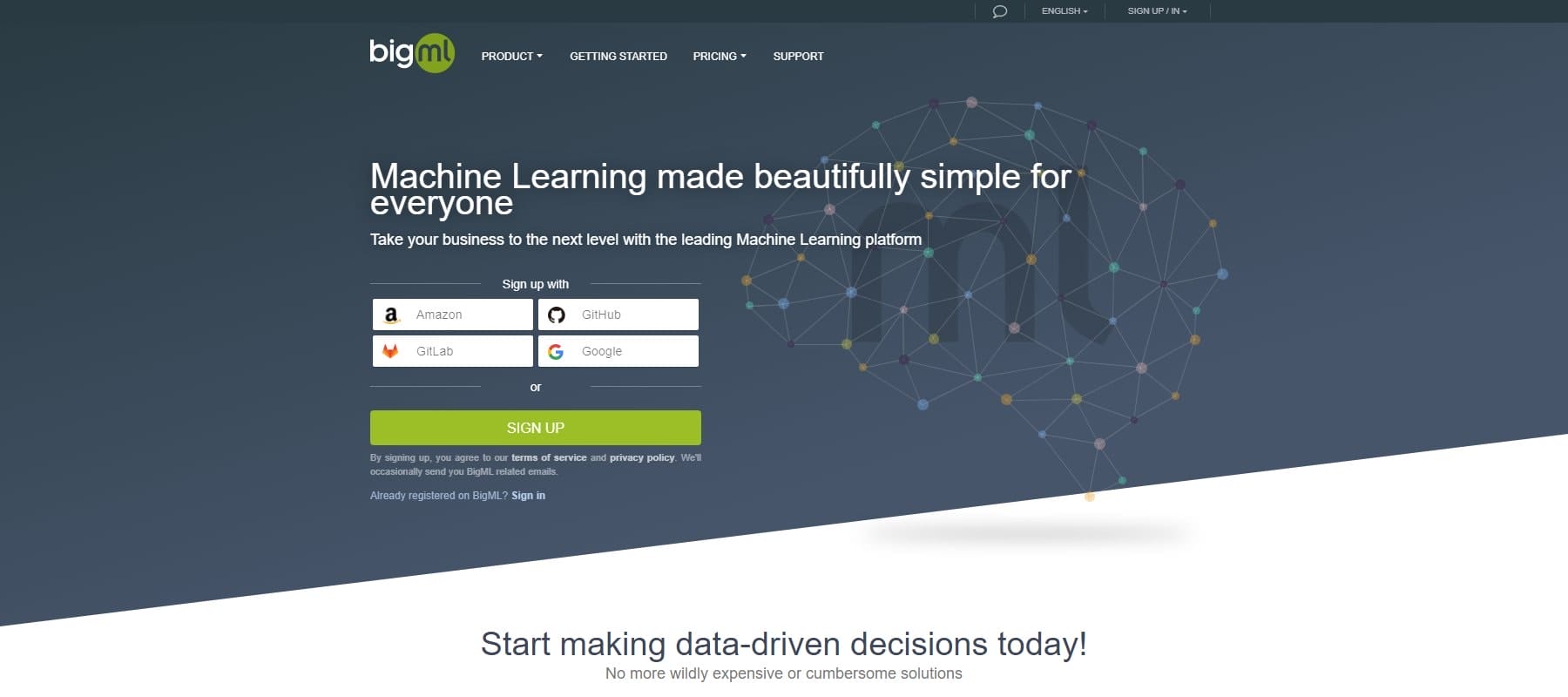
BigML is a cloud-based machine-learning platform that offers tools and algorithms to help developers build and deploy predictive models using machine-learning techniques such as decision trees, random forests, and deep neural networks. It’s one of the easiest platforms to start using.
Key Features:
- The platform that lets you build, deploy, and manage custom AI models
- Applies machine learning algorithms, like decision trees, random forests, and deep neural networks
- Has on-premises and cloud deployment options
8. Viso Suite
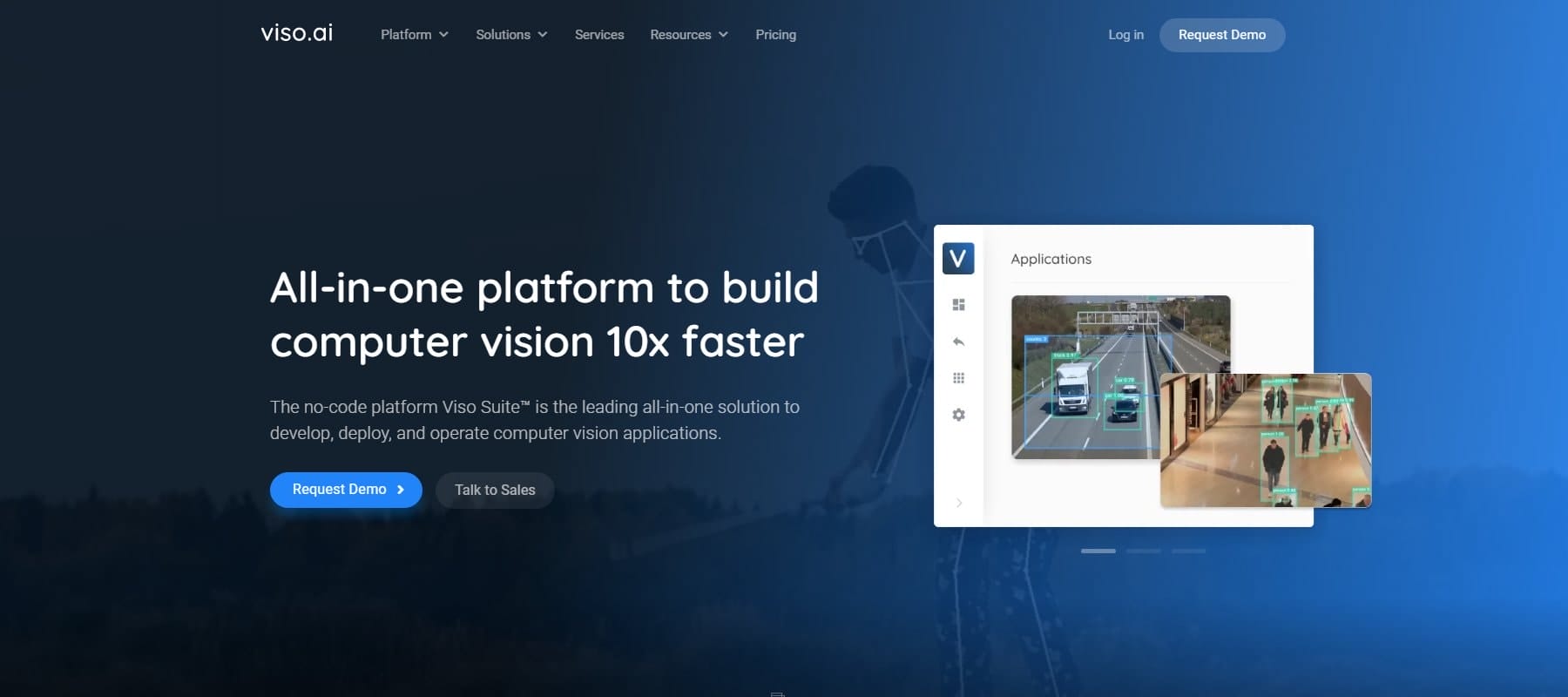
Viso Suite is an AI-powered computer vision software platform. It provides a comprehensive computer vision application development platform that is meant to be used by businesses to create their own applications. This can help monitor traffic, count inventory, and so much more.
Key Features:
- Combines powerful computer vision with an application development platform
- The low-code solution that can speed up the development of advanced AI systems
- Pre-built integrations to make the low-code environment even more agile
9. Observe.AI
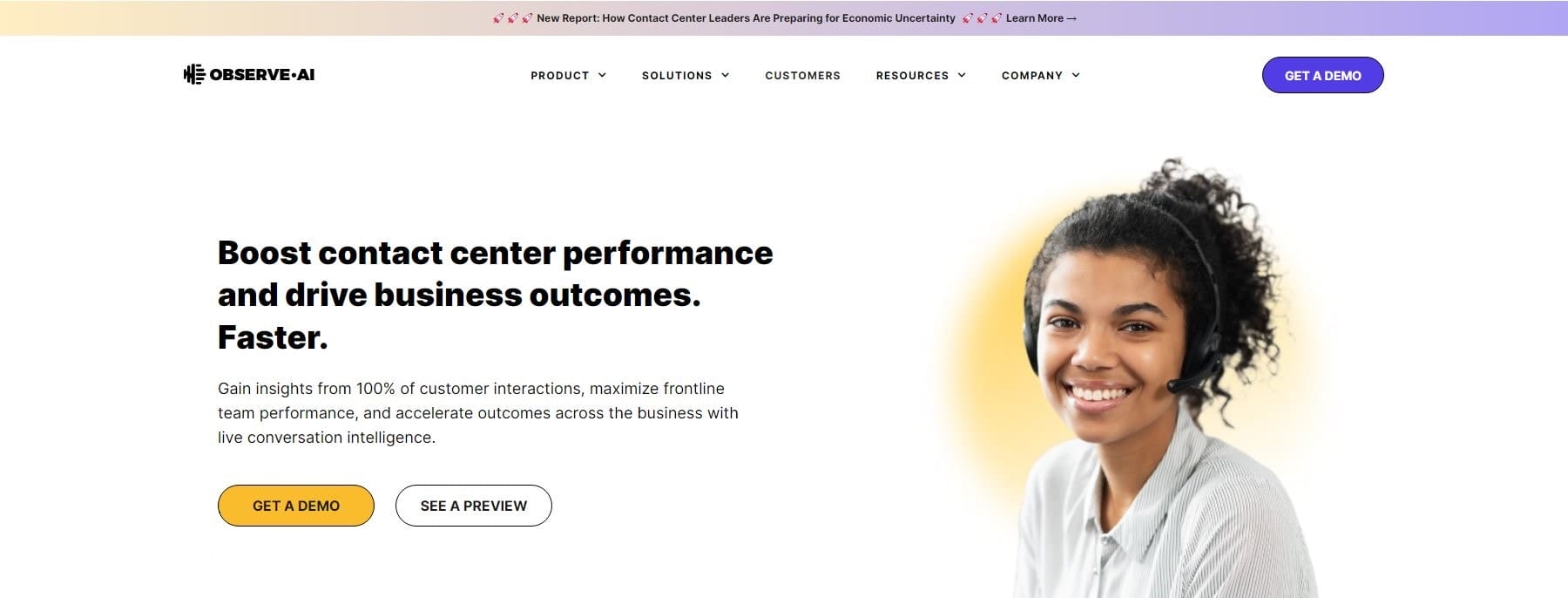
Observe.AI is an AI-powered call center solution that uses natural language processing and speech recognition to analyze and transcribe customer conversations in real-time. The benefits are that it enables businesses to gain insights into customer sentiment, identify trends, and improve agent performance at scale. AI developers working on customer experience (CX) and support can use Observe to increase the speed of insight adoption drastically.
Key Features:
- Speech recognition, transcription, and NLP layered into a powerful voice platform
- Analytics capabilities to see what’s going on across an entire support organization
- Deep analytics and insights to fix problems and capitalize on top performance trends
Best AI Development Software
Google Cloud AI Platform and Microsoft Azure AI stand out as the top AI development software options available today.
Google Cloud AI Platform best suits developers seeking a scalable, cloud-based service that supports popular frameworks like TensorFlow and Scikit-learn. It offers powerful built-in algorithms, perfect for handling tasks such as image recognition and natural language processing.
On the other hand, Microsoft Azure AI is an excellent choice for organizations looking to build, deploy, and manage AI solutions at scale using an enterprise-ready suite of AI services and tools. It seamlessly integrates with popular development tools like Visual Studio and GitHub, providing a robust and efficient environment for businesses to harness the power of AI.
And for those creating advanced Conversational AI products, IBM Watson is something to seriously consider.
Not ready to build your own AI tools but want to use AI in your current work? Take a look at the best AI writing software, our top recommendations for AI chatbots, and our all-around favorite AI tools.
Featured image by AVIcon / shutterstock.com
The post 9 Best AI Development Software in 2023 appeared first on Elegant Themes Blog.
